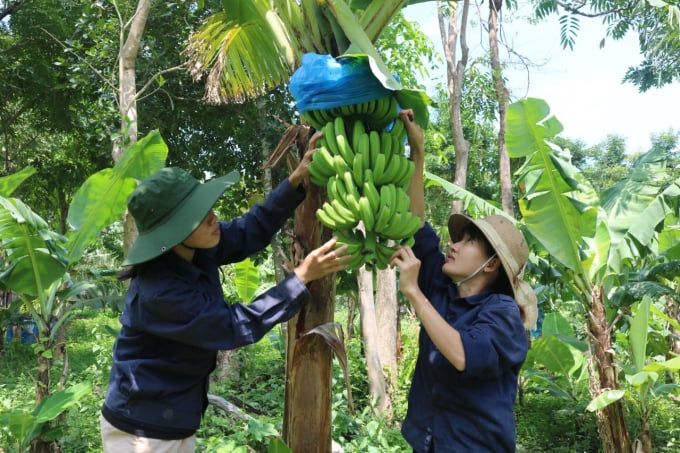November 28, 2025 | 03:40 GMT +7
November 28, 2025 | 03:40 GMT +7
Hotline: 0913.378.918
November 28, 2025 | 03:40 GMT +7
Hotline: 0913.378.918

Khanh Hoa strives that by 2030, more than 80% of rice, vegetables and fruit trees will be applied IPHM. Photo: KS.
The People's Committee of Khanh Hoa province recently issued a decision on the implementation of an action plan to promote the application of integrated plant health management (IPHM) on the main crops and key crops in the province in the period of 2023 - 2030.
Accordingly, Khanh Hoa province sets a target that by 2030, over 70% of communes will have a core group of farmers with knowledge, skills and effective application of IPHM. They also have the ability to guide other farmers to apply IPHM, evaluate the effectiveness and disseminate the results to the community.
Strive to have more than 80% of rice, vegetable and fruit areas apply IPHM; 70% of the province's key crop area serves agricultural restructuring with the application of IPHM. This includes the evaluation of the effectiveness and dissemination of the results to the community. Thereby reducing the amount of pesticides and chemical fertilizers by 30%; over 90% of communes collect pesticide packaging after use in accordance with regulations...
IPHM application aims to actively prevent plant pests, reduce input costs, reduce toxic chemicals, reduce greenhouse gas emissions, increase productivity, product quality, production efficiency, food safety assurance, environmental protection, and adaptation to climate change...
Translated by Hoang Duy

(VAN) According to Mr. Vo Minh Thanh, Director of the Tay Ninh Department of Agriculture and Environment, Resolution 57 has created a new development pathway for the locality, shifting from traditional toward modern agriculture.
/2025/11/26/4909-2-154329_878.jpg)
(VAN) Pearl grouper farming in HDPE cages not only delivers economic efficiency but also contributes to protecting the environment, creating jobs, and promoting marine-based experiential tourism.

(VAN) The model of making a living under the forest canopy through the agroforestry system in Van Son commune, Bac Ninh province, is expected to generate an annual income of approximately VND 30 million/ha.

(VAN) Many enterprises in Can Tho are harnessing natural energy and reducing greenhouse gas emissions in their production processes, thereby contributing to the promotion of a sustainable green transition.
/2025/11/24/3536-2-112800_176.jpg)
(VAN) Dong Nai now has tens of thousands of hectares of forests certified for sustainable management, and this area will continue to be expanded in the coming period.

(VAN) Vinh Ha hamlet (Dai Xuyen commune, Hanoi) is shifting away from small-scale farming as households adopt bioscurity into their breeder chicken models.

(VAN) Heavy rains make aquatic species more vulnerable to disease. Proactive water management and high-tech systems help farmers prevent outbreaks and protect yields.